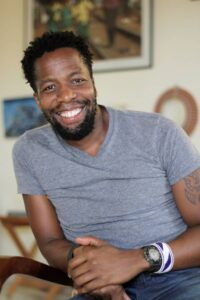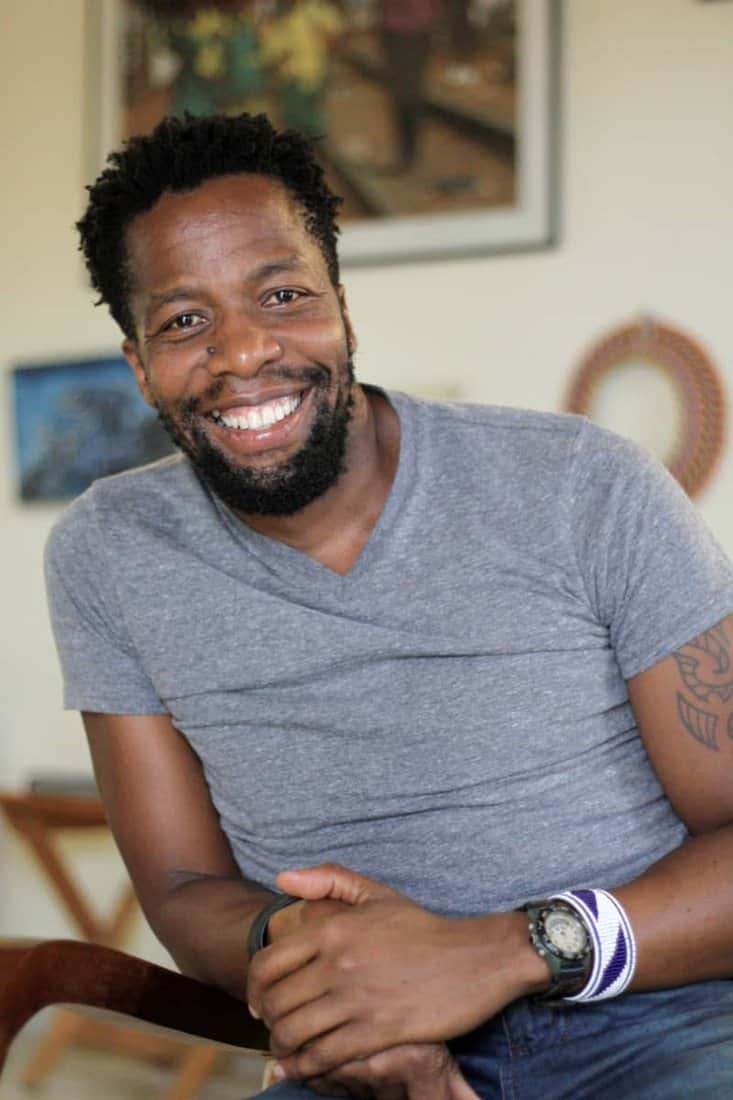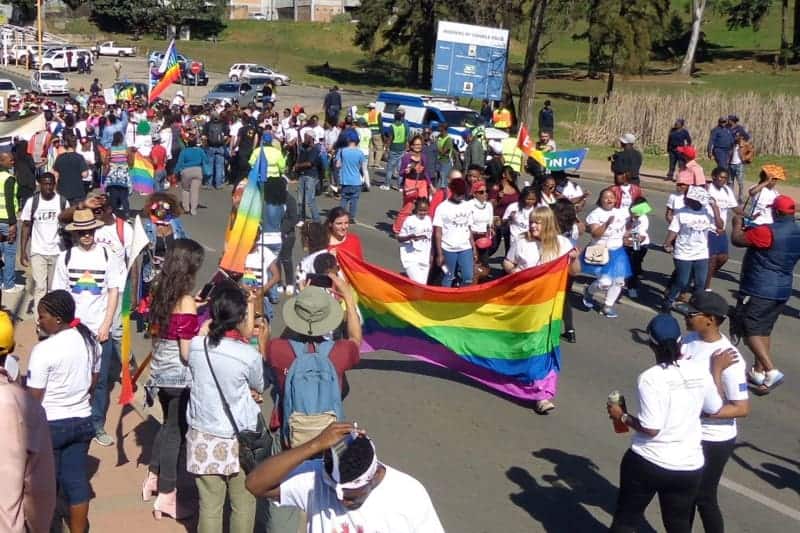
DPA

Parades, flags and celebrations are all important to queer communities in Africa as they seek greater visibility and acceptance, despite the threats faced by many throughout the continent.
Many people have now decided to stop hiding, even though how far lesbian, gay, bisexual, and transgender (LGBT) people can live openly and safely differs significantly from one country to the next.
There has been visible progress, however, as 22 of Africa’s 54 countries have decriminalized homosexuality, including Angola, Botswana, Cape Verde, Gabon, Guinea-Bissau, Lesotho, Mozambique, São Tomé and Príncipe, the Seychelles and South Africa.
The trend is heading in the right direction, according to LGBT Marriage News, a US organization. Homosexuality is gradually being accepted and there is more and more hope, the group says.
South Africa is the forerunner when it comes to LGBT rights on the continent. The country’s 1994 constitution was the first worldwide to ban discrimination on the basis of sexual orientation.
South Africa was also the fifth country globally – and the first in Africa – to legalize same-sex marriage.
Meanwhile, last year, South African Louw Breytenbach was crowned Mr Gay World, winning an annual international competition for gay men.
South Africa is definitely an example for the continent, says Kaye Ally, who founded Pride of Africa, an organization that runs numerous events for the LGBTQI community every year.
Cape Town is now considered Africa’s gay capital, drawing thousands of queer tourists from all over the world.
It’s home to a number of LGTB events and celebrations, including the annual Pride Festival held in February and March, the Mother City Queer Project in December and the Out in Africa Film Festival in September and October.
Annual pride parades are also held in Pretoria, Johannesburg and in neighbouring Botswana, Eswatini and Namibia.
Most artists performing at Johannesburg’s Rock the City LGBTI Festival, now in its third year, are also part of the queer community. Organizer Tschepiso Leeu calls the festival a place of freedom which creates a sense of belonging that many do not have at home, at work or school.
Kenya is among the countries where homosexuality is still a punishable offence. But a lot is changing here too, says journalist, podcaster and activist Kevin Mwachiro, author of a book about the country’s queer community called “Invisible.”
“We have seen more organizations, more individuals who come out, more visibility. There are more Kenyan faces expressing themselves and even the media are slowly recognizing that there is a queer community,” he says.
Mwachiro is co-founder of the Out film festival, the first in the region showing films by and about LGBT people.
There have also been defeats, he says, recalling a 2019 court ruling when several queer organizations tried to force the decriminalization of same-sex relationships – in vain. But such moments, he says, can also strengthen the community.
“I went into court and the room was full of journalists, full of activists, full of community, allies,” he says. It was powerful to show that “we are Kenyans, we are using our constitution, our rights as Kenyans to demand equal access.”
Another example is former BBC reporter Chris Makena Njeri who was outed against her will and later founded the BOLD Network Africa to give a platform to queer narratives in Africa. The organization’s name sums up its vision: “Brave, Odd, Loud, Different!”
Acceptance of queer people is growing, Mwachiro believes – even though teenagers who come out as gay, lesbian or trans are still often thrown out by their families.
More and more places are opening their doors, like a Methodist Church in Nairobi which offers a safe space to queer worshippers. Even in Kenya’s conservative coastal region, Mwachiro has seen special fast-breaking events for queer Muslims during Ramadan.
Cape Verde, Mauritius and the Seychelles are also very queer-friendly – though tourists are often welcomed with more tolerance than those raised in the islands.
Guinea-Bissau has also become a safe haven for the queer community since the Western African nation decriminalized homosexuality in 1993.
LGBT people from neighbouring Senegal, Gambia and Guinea in particular – where homosexuality is still punished with life imprisonment – are often drawn to the country by the wish to lead a safe and normal life.
Hate crimes due to sexual orientation remain a common occurrence in many African countries. And homosexuality is still punishable by death in Somalia, Mauritania and northern Nigeria, according to the International Lesbian, Gay, Bisexual, Trans and Intersex Association (ILGA).
Activists complain that legal protection of the LGBT community in Africa is inadequate, with homophobia remaining rife and in some cases being instrumentalized by lawmakers.
More is needed, says Ally, calling for global partners such as the UN to put more pressure on African nations.
Meanwhile Mwachiro says it is partly thanks to the internet that gay, lesbian, trans or non-binary people in Africa have access to information and get in touch with each other.
“And that has helped people – you have to go online and find people, it helped people to see they are not alone. There are others who are African, who are brown-skinned, who are queer just like them – and that has given people the space to be themselves,” he says. “It gave them a chance to explore their sexuality, sexual identity or gender identity.”
And the Covid-19 pandemic, which shifted many parts of public life online, has helped reinforce the trend. Mwachiro explains excitedly how a virtual Pride Afrique event enabled LGBT people from across the continent to come together and celebrate.
“It was just exciting to see people from different parts of the continent enjoying an event that celebrates African queerness. At one time you’d hear people from Khartoum, from Mali, not just the usual suspects from bigger countries,” he says. “The internet has been a big factor to make people more self-aware.”
He acknowledges more progress is needed but said some are living their best lives out there. “We are able to challenge Western concepts. We are of this soil. We are declaring our Kenyanness together with our queerness.”



Recommended Comments
There are no comments to display.